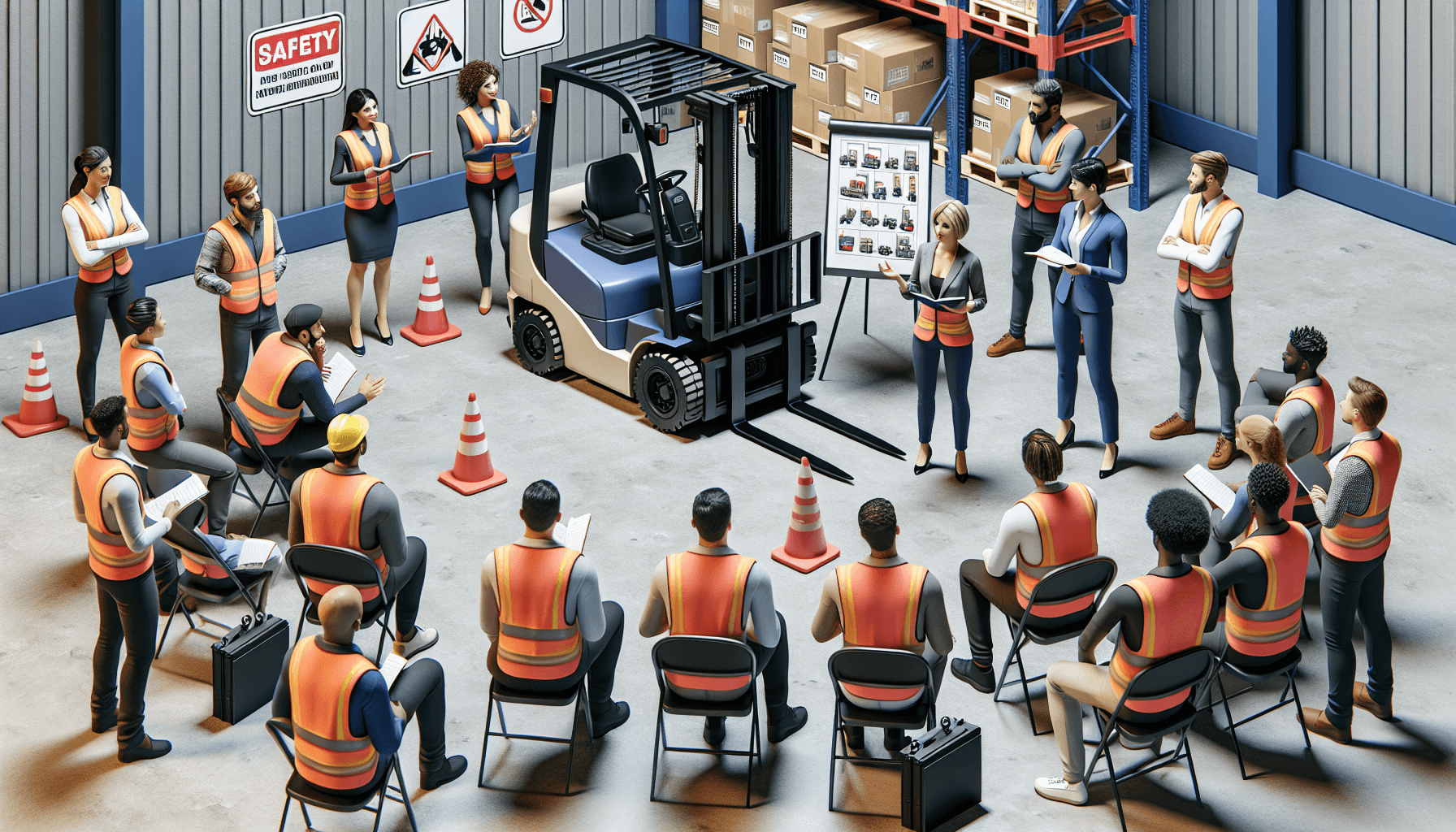In the fast-paced and dynamic environment of a warehouse, ensuring the safety of all employees is of utmost importance. One crucial aspect of warehouse safety is conducting proper forklift safety sign-offs. By implementing a robust sign-off process, warehouse managers can significantly enhance the safety and efficiency of their operations.
Why are Forklift Safety Sign-Offs Important?
Forklifts are powerful and versatile machines used in a variety of warehouse tasks, from moving heavy loads to stacking pallets. However, operating a forklift comes with inherent risks that can lead to accidents and injuries if not handled properly. Forklift safety sign-offs provide a structured system for ensuring that every forklift used in the warehouse is in good working condition and that operators are trained and certified to operate them safely.
By conducting regular safety sign-offs, warehouse managers can:
- Promote a culture of safety: Safety sign-offs demonstrate that the company prioritizes the well-being of its employees and is committed to maintaining a safe working environment. This creates a culture of safety awareness among all warehouse staff.
- Prevent accidents and injuries: Conducting safety sign-offs helps identify any potential issues with forklifts before they become major problems. Regular inspections and maintenance can prevent malfunctions or breakdowns that may lead to accidents and injuries.
- Ensure compliance with regulations: Forklift safety sign-offs help warehouses comply with Occupational Safety and Health Administration (OSHA) regulations and other industry standards. Compliance with these regulations not only avoids penalties but also ensures a safe working environment for employees.
- Reduce downtime: Addressing any maintenance or repair needs during the sign-off process helps prevent unexpected breakdowns during operations. This proactive approach reduces downtime and keeps warehouse operations running smoothly.
- Improve productivity: A well-maintained fleet of forklifts and properly trained operators can significantly improve productivity in a warehouse. Safety sign-offs ensure that forklifts are operating at optimal levels and that operators are equipped with the necessary skills and knowledge to handle them safely and efficiently.
Implementing an effective forklift safety sign-off process involves several key components:
Components of an Effective Forklift Safety Sign-Off Process
- Regular inspections: Conducting routine inspections of all forklifts is vital to identify any potential safety hazards or mechanical issues. Inspections should include checking the brakes, tires, lights, horn, and other essential components. Any damaged or malfunctioning parts should be promptly repaired or replaced.
- Operator certification: Only certified and trained operators should be allowed to operate forklifts. Conduct thorough background checks and provide comprehensive training programs to ensure operators are competent in handling forklifts safely. Regular re-certification and refresher courses should also be provided to keep operators up to date with the latest best practices.
- Documentation: Maintain detailed documentation of all safety sign-offs, inspections, and certifications. This creates a record of compliance and can be utilized for audits or investigations if needed.
- Employee engagement: Involve employees in the safety sign-off process by encouraging them to report any potential hazards or issues they observe. Regular safety meetings and open lines of communication can help foster a culture of accountability and shared responsibility for safety.
- Continuous improvement: Regularly review and assess the effectiveness of the safety sign-off process. Identify areas for improvement and implement necessary changes to enhance safety and efficiency.
In summary, forklift safety sign-offs play a crucial role in maintaining a safe and efficient warehouse environment. By implementing a comprehensive sign-off process that includes regular inspections, operator certification, and proper documentation, warehouse managers can ensure that their forklifts are in good working condition and operated safely. This not only reduces the risk of accidents and injuries but also improves productivity and compliance with safety regulations.
If you are looking for expert guidance in conducting a thorough warehouse safety evaluation, HCO Innovations offers warehouse optimization solutions tailored to meet your specific needs. Their team of professionals specializes in enhancing safety, productivity, efficiency, and cost-effectiveness within warehouse operations. Take the first step towards a safer warehouse environment by scheduling a consultation with HCO Innovations today.

